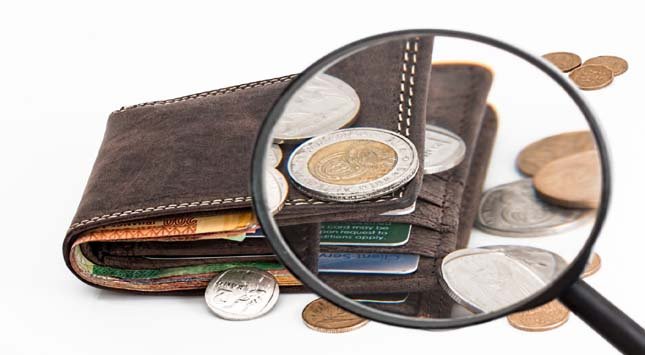Debt is a controversial subject at the best of times. I’m Canadian, and for us, debt has become a bit of a national nightmare.
As of year-end 2020, the average Canadian owes $1.71 for every dollar they own (source: rates.ca). Debts are crippling us. Mortgages, lines of credit, unsecured loans, and of course Credit Cards. Credit Cards are the worst of the worst.
The way my parents spoke of them, they were right up there with hard drugs and the devil on the list of things that will ruin your life forever.
They will be disappointed to hear that their golden boy has been using a credit card for every purchase in the past 10 years. Mind you, I managed to maintain a very high credit score while doing so.
The key, of course, is paying them off on time, always. I buy everything on my credit card, and on a biweekly basis, the day my pay comes in, I pay the credit card off once again.
Now keen readers might be thinking, yes, this is doable. But what is the point? The point, my friends, is the points. Rewards points to be exact. The amount of money you are leaving on the table by not using a credit card for every purchase is significant. Let’s dive right in and take a look:
The Point is the Points
Every good credit card rewards you for using it. This can be expressed as a percentage, such as 1% cashback. It can also be a set of points redeemable on the card’s website for air travel, special events, or just random merchandise on their website.
Now how much value this brings depends a lot on your specific situation. An avid traveler might save a ton of money from a card giving them 5% of every purchase towards airfare. However, for a homebody who rarely ventures outside such a card would be next to useless.
To keep things simple and applicable to everyone, let us focus on the one thing that most of us agree we want more of: cold hard cash.
Cashback, or cash rewards as a percentage of every purchase, is a very straightforward system. If you have a cashback of 1%, then 1% of the price of everything you buy comes back to you at the end of the year as a cash reward. If you spend $100, your cashback that year will be $1.
Over a whole year, this adds up. Let’s keep using Canadian families as an example. Remember though that this point still stands no matter where you live, assuming you can get your hands on a credit card.
In 2019 the average Canadian family spent $93,724 in yearly expenses (source: Stats Canada). Now that number includes a whole bunch of things that generally aren’t paid by credit card, so I took the liberty of taking those out:
| Total | $93,724 |
| Shelter (Rent, Mortgage, etc…) | -($20,200) |
| Income Tax | -($17,167) |
| Personal Insurance Payments and Pension Contributions | -($5,297) |
| After Expenses | $51,060 |
So about $50,000. That’s how much a typical family spends on STUFF in the Great White North every year. 1% of $50,000 is $500.
$500 feels like very little when presented like this but think of it this way. If somebody handed you $500, right now, out of the blue, and you did not have to do anything to earn it, how would you feel? $500 in annual passive income just for using a card that you already own, to buy products that you would already buy is a pretty good deal.
Of course, better credit cards usually give better rewards too. Unfortunately, they usually come with fees, sometimes charging more than $100 yearly to use the card. When you do the math, however, you will find that not all fees are as bad as they seem.

You May Read: Can I Get a Loan If I Have Credit Card Debt?
Fees are Fine
Let me tell you my story.
I like to travel. My card, which I use for nearly everything, rewards me 5% for eating out, 3% on transit (Gas, rideshare, bus pass), 3% on streaming services, and 1% everywhere else.
I can use this money for air tickets, hotel stays, and many other eligible travel expenses. Of course, on the flip side, it charges me $120 yearly for this privilege. Plugging the numbers back into that average Canadian family we get:
$2,775 from Restaurants x 5% = $138.75
$11,761 from Transportation x 3% = $352.83
$36,524 from Everything Else x 1% = $365.24
Fee = -($120)
Total = $736.82
$736.82, for free, towards airfare, or a hotel stay once a year. That sounds like a nice, discounted, vacation to me. You will notice that this number also includes the fee.
So, if you are making more than the fee, avoiding annual fees should not be your priority. Think of it like a business: if you are turning a profit, it is ok to have an expense.
In my case personally, the picture was a lot more impressive. As a young lad with a salaried job and little to no responsibilities, my expenses looked a little different from the Canadian average.
In fact, after rent, my two largest expenses were probably “the pub” and various online streaming subscriptions. In 2018 I made $800 cashback in seven months!
I am ashamed to admit that it was mostly thanks to American Express’s tendency to reward me for excessive drinking at various after-hours establishments of dubious repute. Naturally, I took this money and went to New Orleans for a week, where I engaged in similar financially rewarding behaviors.

Reward Yourself for Being Yourself
Now I am not advocating my lifestyle or any lifestyle for that matter here. Rather, the main takeaway here is that personal finance is just that… personal.
To make real money from rewards points, get a card that rewards you for being you. If you do 90% of your shopping at a specific store, get that store’s card. If you spend a lot at bars and restaurants, get a card that rewards you for doing that.
These cards can be quite flexible too. People who frequent bars, and people who frequent restaurants selling healthy food will benefit equally from a card that rewards restaurant purchases.
No matter who you are, be honest with yourself. Get the card that rewards the person you are, not the person you want to be, or the person you pretend to be for three weeks after January 1st. When you do get it, use your card for every purchase and ALWAYS pay it off on time.
You May Read: A Few Pieces of Financial Advice
Always Pay on Time
Up until now, I was focused on the upside of using your card. Now, before we get too carried away, let’s look at the flip side. These savings are quickly canceled out if you hold debt on the card. Most card companies mandate a payment once a month, to avoid interest charges.
I pay mine twice a month, with my paycheck, religiously, to make sure that I am never even close to that deadline. I also never have more on the card than I have in my bank account.
This is the only way to make this method profitable. If you have more money in your account than you have on your credit card, you can use it as an extension of your debit card with better rewards.
As soon as you are holding a balance long enough to pay interest (more than 25 days for most cards), the card stops being a reward machine and becomes a very expensive debt. That is why, when you always use your credit card, you must always pay off the entire balance on or ahead of time.
Don’t think of a Credit Card as a debt, think of it as your own, personal little reward machine. If you treat it right and pay it off in full at least once a month, it will keep giving you rewards for doing what you already want to do.
Take a little time to pick the right credit card and keep using it while you do whatever makes you happy. You might be surprised at how much you can make this way. There is nothing wrong with rewarding you for being you.
You May Read: When Should You Use Your Credit Card?

